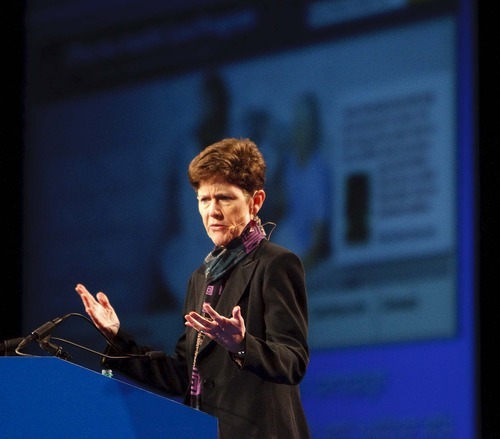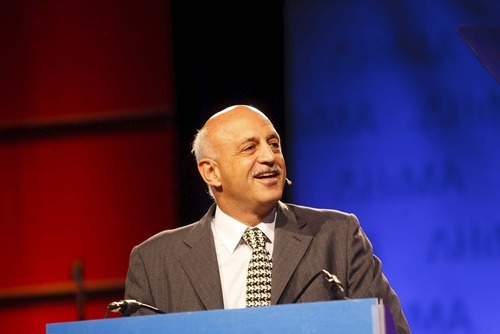This is an archived article that was published on sltrib.com in 2011, and information in the article may be outdated. It is provided only for personal research purposes and may not be reprinted.
Health information managers are the Marines of health reform, sweating it out on the front lines of a high-tech push for smarter, lower-cost health care.
For a decade, privacy concerns, high up-front costs and a lack of data-sharing standards have waylaid their quest to deliver on the promise of electronic health records.
But the consensus Tuesday at the American Health Information Management Association's (AHIMA) annual conference in Salt Lake City was that health IT's time has come.
"Health information management is no longer just a nice thing. It's completely indispensable," said keynote speaker Carolyn Clancy,director of the federal Agency for Healthcare Research and Quality (AHRQ).
President Barack Obama's health overhaul has been criticized for focusing only on improving access to care by reducing the ranks of uninsured while doing little to improve health care or make it more affordable.
But tacked onto the law are billions in financial incentives that doctors and hospitals can tap to build and upgrade their computer systems.
It's those e-health systems that will allow doctors to exchange critical patient data, thereby avoiding medical errors and duplicate lab tests. And it's those systems that can be mined for evidence on which treatments work and which endanger patients or are a waste of money.
America's health care system has its strengths, said Clancy. "We lead the world in biomedical breakthroughs, which means multiple treatment options for patients."
But where we fall short, said Clancy, "is in helping patients understand which options are best for them."
Americans spend more on health care than the citizens of any industrialized nation but are no healthier or long-lived as a result.
Doctors have been slow to digitize patient records. But that's changing due partly to the federal incentives and patient expectations, said Keely Cofrin Allen, director of the state's Office of Health Care Statistics.
"Doctors I talk to certainly see the benefit of having a patient's complete medical record. And I think patients are pushing back," Allen said. "I know I lose patience having to fill out my medical history at every office visit."
Economics also pay a role.
Insurance companies, looking to curb spending, are designing ways to pay providers to keep patients out of the hospital, instead of paying for more tests and treatments, said Sharon Donnelly, vice president of strategic development at the nonprofit HealthInsight.
"If I'm a doctor the first question I'll need to answer is which of my patients are going to the ER and what kinds of things can I do on an outpatient basis to prevent that," Donnelly said. "You need data for that."
The federal government has long financed providers' e-health systems. The difference now is that grants require clinics and hospitals to prove they're using their computers to improve patient care, said Donnelly.
HealthInsight helps providers, mostly smaller clinics, achieve so-called "meaningful use" with their systems. The nonprofit has recruited about 1,500 providers in Utah and Nevada, about two-thirds of whom use electronic records and 39 of whom have achieved meaningful use, said Donnelly. "We're on the verge of making a dent in this."
Twitter: @kirstendstewart





